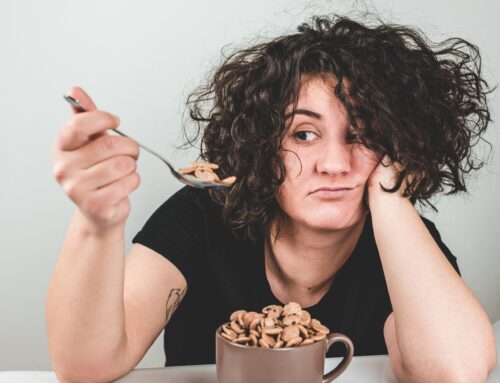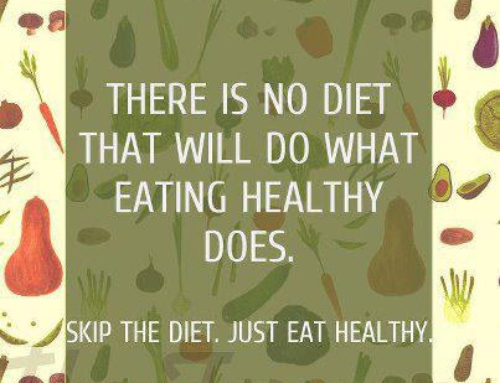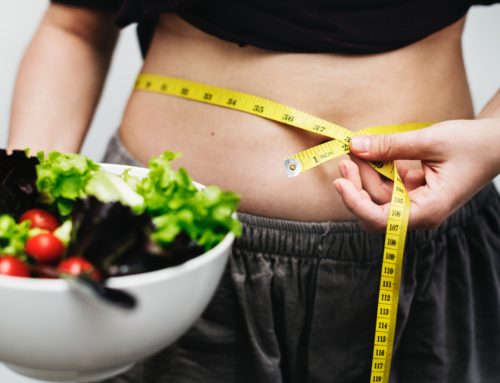I was diagnosed with breast cancer in 2007. Since then, I have been on a mission to ensure that I never hear that diagnosis from my doctor again. Just as important, I have resolved to share the information that I wish I had known when I was first diagnosed. If I can help just one person avoid this scary diagnosis or keep them from hearing it again, my efforts will have paid off immensely.
The fact is we all have cancer cells in our body. A healthy immune system is designed to recognize these cells and eliminate them. When our bodies become weakened and compromised, things start to go wrong. Cancer is a symptom of a weakened body that is hormonally imbalanced, nutrient deficient, stressed-out and toxic. We can cut out, radiate and poison the tumors but ultimately they can come back if we don’t create an internal terrain, an inhospitable environment that will prevent the spread of cancer and its recurrence. This is where our medical system falls short.
With traditional medicine, we are only considering part of the big picture. Traditional medicine focuses on tumor type and location and the type of treatment that will eradicate that specific tumor. However, according to Dr. Mark Hyman, a leading expert in the field of functional medicine, there are more important questions to consider. Why did this cancer grow in our bodies in the first place? How can we change the internal terrain that is allowing the cancer to grow and flourish in our bodies? How did our bodies become vulnerable to this disease process and how can we stop it from continuing? We can’t just blame it on our genes!
Less than 25% of cancers are genetic. Even if you have the genes that will make you more susceptible to getting cancer, they don’t necessarily get expressed unless our biological terrain becomes a breeding ground for cancer cell growth. You may have the genes but the environment pulls the trigger. My mother had breast cancer, but so did a lot of my neighbors and friends. We don’t share the same genetic pool, but we do share the same food sources, air, water, culture and lifestyle.
Cancer affects 1 out of 3 people today. The rates have tripled over the last 100 years. Our genetic pool doesn’t change that fast, so what has changed?
1. Food. We are eating processed, sugary, toxic food that our bodies weren’t designed to eat and absorb. This food comes from factories not fields and is full of questionable ingredients and toxins. If you want to grow cancer, eating this way is a great place to start!
2. Stress Levels. We are more stressed than ever! Stress destroys our immune systems and creates inflammation. Many people who are diagnosed with cancer have had significant stress in their lives leading up to their diagnosis. Chronic stress creates an environment ripe for cancer and all disease to flourish. Like they say…we can worry ourselves sick!
3. Lack of Movement. We have become increasingly sedentary. The majority of our days are spent sitting in chairs staring at a computer screen or sitting in a car. We have become a culture of spectators rather than doers. Our bodies were made to move and grow stronger. Sitting all day promotes sickness, weakness and atrophy. This is not conducive to a healthy body.
4. Sleep. We all need at least 7-8 hours of restful, restorative sleep each night. Insomnia has become rampant in recent years, doubling our risk for all disease and cancer.
5. Toxins in our Environment: We are exposed to more toxic compounds in our environment than ever before, in our air, food, water and homes. Toxins are carcinogenic and trigger the development of cancer and disease.
So, if these factors play such a large role in getting us all sick and keeping us there, shouldn’t they be where we also look for the answers in the ”War against Cancer”? It is great to have all the ammunition we can to combat this dreadful disease, but I believe we are putting too much time, money and resources into treatments that address later stage, curative care. I believe that it would be far more effective to treat the underlying conditions that create the disease in the first place. Unfortunately for the profit makers in traditional medicine, this approach doesn’t make as much money.
I have to admit that I don’t donate to many pink ribbon campaigns. I find it really disturbing and offensive that many of the companies that proudly display the pink ribbons are the ones responsible for creating the very products and environment that are contributing to the disease in the first place. It is obvious these companies are more interested in profits than they are about any real concern for the cause.
So, if cancer and all disease are created from a disturbance and imbalance in our physiology, it makes so much more sense to direct more of our efforts and research into treating the environment in which the disease arises. It is also important to note, that each individual comes with a different situation as well as risk factors, biological imbalances, cultural beliefs and preferences, emotional states and overall life experiences. How can we treat each person with a cancer diagnosis with the same “standard of care” and expect it to be effective for all? Our treatments need to be personalized to each patient in order to be effective. We need to consider and understand each person’s individual health challenges and medical history in order to create an optimal healing plan for them.
As a result of my own cancer diagnosis, I went back to school to learn about integrative nutrition and cancer care. I have read and researched hundreds of articles and clinical studies that are using a more integrative, holistic approach to cancer care and prevention. The abundance of information is astounding and the stories of healing are encouraging and amazing. We all need to hear this information, read it and implement it. At least that is what I have chosen to do and it works.
A handout I received in my cancer coach training listed characteristics of people who have overcome cancer, including late-stage cancer. Although your doctor may not talk about it freely, spontaneous remissions do occur. Spontaneous remissions are circumstances where cancer is eradicated using holistic, alternative treatments. In fact, thousands of cases of spontaneous remissions have been reported in several books such as the Spontaneous Remission Bibliography, compiled by the Institute of Noetic Sciences.
10 Characteristics of Cancer Survivors
The Centre for Integrated Healing in British Columbia has summarized the 10 common characteristics of those who have undergone spontaneous healing of advanced, untreatable cancer:
1.In spite of being told that their cancer is incurable they have a deep belief that their body can heal itself
2.They take control and assume a recovery program that is unique to them. They reclaim their own responsibility rather than relying solely on experts
3.They reconnect with spirit, awakening long hidden desires and aspirations. They reconnect with authenticity to their feelings and values and decide to live them
4.They deepen and bring honesty to their relationships with others.
5.A compete re-assessment of their lives is undertaken. They are willing to change. This often includes diet, lifestyle, career, goals and relationships
6.Radical changes in diet have been closely associated with spontaneous remission. These changes usually include decreasing processed, refined foods and consuming more fruits and vegetables
7.They take vitamins and supplements to help support their immune system
8.They slow down, taking time to relax and fully enjoy the gift of life. Often, prayer or meditation becomes a regular practice
9.They become in tune with their body and ‘listen’ for cues relating to energy, emotions and body signals that are a part of daily life
10.They rejoin social networks and experience the joy of being of service to others. Through their own healing, they help to heal others
I am not a medical doctor, and I know very little about surgery, medication, radiation and emergency care. These treatments are invaluable when needed. We have the best medical system in the world when it comes to acute care. You must always work with your healthcare provider when making any medical decisions about your cancer diagnosis and care.
What is missing from traditional medicine is the inclusion of the foundational pillars of health: nutrition, exercise, sleep, stress management and detoxification. Hopefully, this is changing as many of us demand a different approach to our healthcare. The “pill for every ill” mentality is not working for us. We are sicker and more depressed than ever, and the medications with all their lethal side effects are only making things worse. “Let food be thy medicine” first and foremost.
Do you really want to make a difference in your health and recovery? Here’s what the integrative experts are recommending to help you get started:
•Check your Vitamin D level. The research on vitamin D is indisputable. Women with vitamin D deficiency have a much higher risk of breast cancer. In a recent USC study, women deficient in vitamin D were eight times more susceptible to malignant cancer than women with higher levels. The active form of vitamin D (D3) has been shown to inhibit the growth of breast cancer cells. The optimal level is 50-70ng/ml and even higher for treatment of serious disease. The best way to elevate your level is through safe sun exposure and supplementing. Always check with you doctor regarding vitamin D and get yours tested today.
•Minimize sugar and refined carbohydrates. Cancer cells thrive on sugar and refined grains including pasta, bread, cakes, muffins, crackers and cereals. Much research has been done on the correlation between blood glucose and insulin levels and tumor growth. It is important to decrease the glycemic load of your meals by limiting processed foods and especially anything containing high fructose corn syrup. Eat whole foods with fiber, good fats and protein.
•Eat your vegetables. We need at least 8-10 servings a day or more if we are on a healing diet. Cruciferous vegetables have been identified as having particularly potent anti-cancer properties. In one study, women consuming at least 2 servings a day of crucifers had a 40% drop in their risk of developing breast cancer. To get you started, try adding broccoli sprouts to your salads and sandwiches, as they contain up to 50 times the sulforaphane (a powerful detoxifier and cancer killing agent) found in the mature plant. Think kale, watercress, cabbage, cauliflower, broccoli and parsley.
•Enjoy berries. Most berries are exceptionally high in polyphenols. Berries possess anticancer properties which have been found to counter the growth of tumor cells. Berries are high in fiber and low in sugar. Best of all, they are delicious.
•Eat healthy fats and protein. Include quality protein in every meal to get an abundance of healthy fats, which are essential for building every cell membrane in your body. Try wild caught salmon, organic eggs, grass fed beef and nuts, like almonds and walnuts. Use coconut oil or grass fed butter to cook and bake with and olive oil for dressings.
•Spice it up. There is more and more research connecting the amazing medicinal properties of natural spice compounds and cancer/disease prevention. Two powerful anti-cancer spices include turmeric and black pepper spices. Turmeric, revered in India as the “holy powder,” has been found to have an astonishing array of antioxidant, anti-cancer, antibiotic and antiviral properties.
•Drink green tea. Unlike black tea, green tea contains large amounts of catechins, which are compounds that boast many cancer fighting properties. Japanese tea steeped for 8-10 minutes is the richest source of these compounds.
•Get adequate sleep, ideally 7-9 hours a night in a dark room. Lack of sleep is associated with weight gain and an increased risk of disease. Sleeping in a dark room ensures adequate production of the hormone melatonin, which reduces the risk of breast cancer. Quality sleep gives your body the time it needs to repair, rest and heal.
•Avoid toxic body care products. These chemicals are absorbed straight into your blood. If you can’t eat them you probably shouldn’t be rubbing them into your skin.
•De-stress. Chronic stress takes a serious toll on your body and keeps the hormone, cortisol high. When cortisol is chronically elevated, your risk for breast cancer is significantly increased. Treat yourself to a relaxing massage or maybe a yoga class. Learn to meditate. Yoga and meditation improve mood and decrease stress by increasing the levels of GABA, an antidepressant neurotransmitter, in the brain.
These are just some of the things you can start implementing today to prevent cancer and serious disease. We know without a doubt that a diet rich in natural fruits, vegetables, quality fats and proteins promotes vibrant health and longevity.
Creating vibrant health is a process and a journey. It doesn’t happen overnight and finding the right support is crucial. I have been working on it myself for the last 8 years. I urge you to take back control of your own health. No one else can do it for you! It feels so much better knowing you are being proactive and not just sitting around waiting for your next mammogram or lab test to see if everything is still ok. Find one new thing every day that you can do for yourself and you will be on your way. You are worth it!
As a result of my studies, I have become a Functional Medicine Health Coach specializing in cancer recovery and thyroid health. I offer a Free Health Discovery Session and would be happy to talk with you and discuss your wellness concerns and challenges and support you in your healing journey.







Leave A Comment